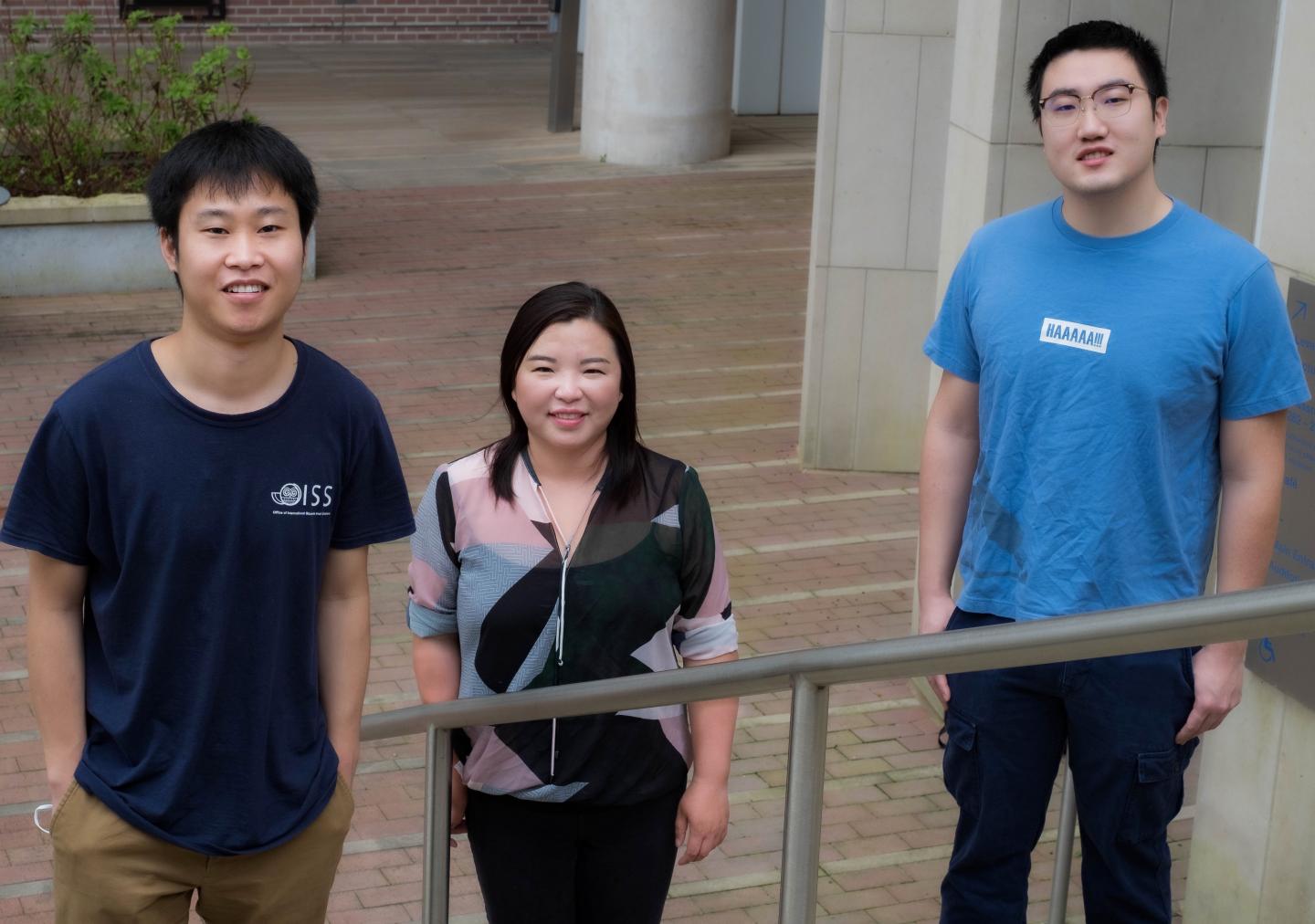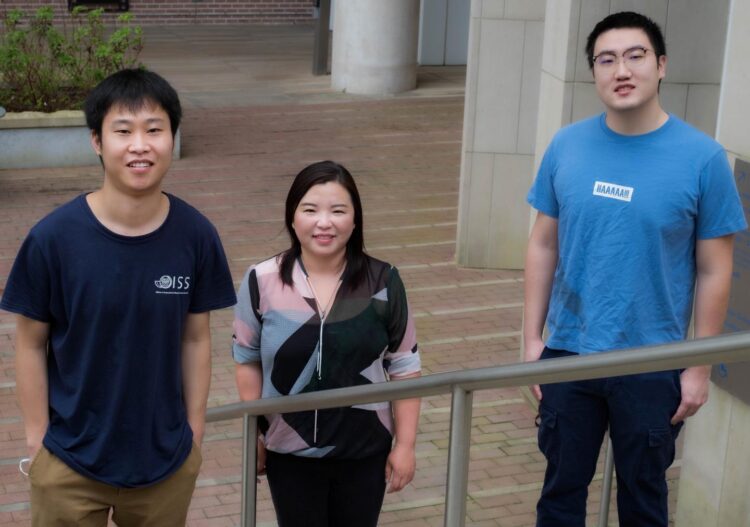Xue Sherry Gao developing base editors to fix multitude of single mutations that cause disease

Credit: Jeff Fitlow/Rice University
HOUSTON – (April 8, 2021) – Chemical and biomolecular engineer Xue Sherry Gao of Rice University’s Brown School of Engineering has won National Institutes of Health support for a new strategy to fight cystic fibrosis.
The agency awarded Gao a four-year R01 grant of more than $2 million to adapt tools developed by her lab that increase the accuracy of CRISPR/Cas9-based gene editing to repair mutations responsible for the disease that affects 70,000 people worldwide.
Cystic fibrosis is a hereditary disease that could be caused by single-point mutations in the cystic fibrosis transmembrane conductance regulator (CFTR) gene that normally regulates chloride and bicarbonate transportation.
Medications for the disease merely help treat the symptoms and have to be taken for a lifetime, said Gao, the T.N. Law Assistant Professor of Chemical and Biomolecular Engineering and an assistant professor of bioengineering and of chemistry.
“The problem is CFTR is a huge gene,” she said. “Researchers have checked genetic mutations in this specific gene, and they found there are more than 2,000 variations. Not all of them lead to the disease, but it’s believed more than 350 of the mutations cause cystic fibrosis.”
While gene therapy often aims to replace an entire faulty gene with a good one, Gao’s tools are intended to correct single-point mutations. “Because the gene is so large, it’s difficult to use gene therapy to deliver a good copy of CFTR and restore the function,” she said. “The technology we want to use is called gene editing. Instead of replacing a gene, we are trying to fix it.”
Gao has experience with the concept, having developed gene editing to treat hearing loss from genetic mutations, as described in a 2018 Nature paper. Her 2020 paper introduced tools to fix inadvertently adjacent cytosines in DNA. The editor converts these “bystander Cs” to thymine to repair the mutations.
That work led directly to her plan to repair CFTRs. Gao would employ a nickase Cas9 base editor that cuts one side of double-stranded DNA rather than both for the sake of accuracy and to lessen the risk of off-target edits.
“We also want our base editors to be able to do multiplex editing, because in a given patient gene, there are many different single mutations at various positions,” she said.
“And it’s not just for treatment,” Gao said. “It will also allow us to create a library of cystic fibrosis cell lines we can use to study whether small molecule drugs are effective. We want to achieve a more personalized gene therapy for cystic fibrosis as well as for many other genetic diseases.”
Rice’s Gang Bao, the Foyt Family Professor and chair of bioengineering and a professor of chemistry and of materials science and nanoengineering, and Anatoly Kolomeisky, a professor and chair of chemistry and a professor of chemical and biomolecular engineering, are co-principal investigators on the grant.
###
This news release can be found online at https:/
Additional Media Contact:
Mike Williams
713-348-6728
[email protected]
Follow Rice News and Media Relations via Twitter @RiceUNews.
Related materials:
‘Bystander’ Cs meet their match in gene-editing technique:
http://news.
Engineers enlist fungi to advance against disease:
http://news.
Hearing is believing in gene therapy’s promise:
http://news.
The Gao Laboratory:
https:/
Department of Chemical and Biomolecular Engineering:
https:/
George R. Brown School of Engineering:
https:/
Images for download:
https:/
CAPTION: Xue Sherry Gao.
https:/
Rice University chemical and biomolecular engineer Xue Sherry Gao, with graduate students Qichen Yuan, left, and Zane Zeng, has won a prestigious National Institutes of Health grant to develop personalized gene editing techniques for cystic fibrosis. (Credit: Jeff Fitlow/Rice University)
Located on a 300-acre forested campus in Houston, Rice University is consistently ranked among the nation’s top 20 universities by U.S. News & World Report. Rice has highly respected schools of Architecture, Business, Continuing Studies, Engineering, Humanities, Music, Natural Sciences and Social Sciences and is home to the Baker Institute for Public Policy. With 3,978 undergraduates and 3,192 graduate students, Rice’s undergraduate student-to-faculty ratio is just under 6-to-1. Its residential college system builds close-knit communities and lifelong friendships, just one reason why Rice is ranked No. 1 for lots of race/class interaction and No. 1 for quality of life by the Princeton Review. Rice is also rated as a best value among private universities by Kiplinger’s Personal Finance.
Media Contact
Jeff Falk
[email protected]
Original Source
https:/





